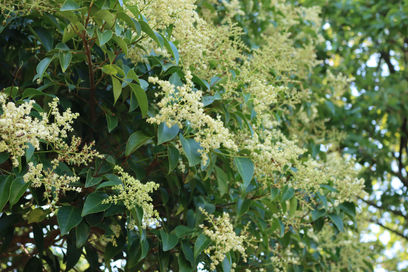top of page

Pest Free - Plants and Weeds
Help our natural environment
In 2017, Auckland was labelled the weediest city in the world. A number of plants that came from overseas have become invasive due to our rich soil and temperate climate. These plants have snuck into reserves and native areas, stopping our native plant seeds from germinating and killing mature trees by smothering them or out-competing them.
If we let them kill our native trees and plants, our native bats, insects, birds and lizards will lose their natural habitats and diets. Let's return our natural environment to our taonga species!
Examples of Pest Plants:
Identify your plants
To effectively control your pest plants, you first need to know what you're dealing with. There are many resources to help you with identification:
-
Email images to our pest free activator at pestfree@beautification.org.nz for help identifying your pest plant
-
Download the iNaturalist app which allows you to share photos with others to confirm your identification
Find out the best control methods
It’s important to find out the best way to control and dispose of pest plants, as they respond differently to poisons. Make sure that you are using the right eradication method! Search your plant on Auckland Council’s website for the most up to date information on effective control.
Get involved
Utilise our free tool library to organise a group working bee to remove pest plants. See our community project guide to help you plan your event.
Take part in the annual Moth Pod Plant competition between March and April – cash prizes to be won! Keep an eye on the Pest Free South Auckland Facebook page for more information.
Your impact
Moth Pod Competition
In 2024, 1,136 people formed 66 teams, schools and community groups across South Auckland and collected 128,936 moth pods, which stopped an approximate 90 million seeds from spreading.

Moth plants are vines that smother native plants and pop up in yards all across Auckland. Each year they flower and produce pods that look like the choko vegetable. But don't mistake them! These moth pods are poisonous and sap from the plants can irritate the skin.
Each pod produces thousands of dandelion-like seeds which can fly kilometres away in the wind and grow in a new place (even between cracks in the concrete!).
The annual moth pod competition sees individuals, teams, and communities get together over March to May, competing for cash prizes up to $1,000 for who can collect the most moth pods.
2025 registrations are open now!
Our partners




.png)

bottom of page










